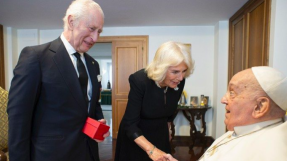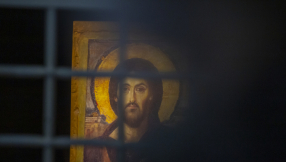The Evangelical Alliance has called for a "common sense" approach to Christian belief in public life.
The organisation spoke out after the European Court of Human Rights handed down judgements on four key Christian freedom cases today.
The court found that airline check-in worker Nadia Eweida had been discriminated against by employers British Airways when she was prevented from wearing a cross at work.
However, the court ruled against a similar case involving nurse Shirley Chaplin, who was removed from ward duties for refusing to remove a cross necklace. The court found that it was appropriate for the hospital to make the request on grounds of health and safety.
Two other Christians, relationship counsellor Gary McFarlane and registrar Lillian Ladele, also lost their cases seeking the right to conscientious objection in the workplace.
Mr McFarlane was sacked for gross misconduct by Relate after he said he would not be able to provide sex therapy to same-sex couples.
Ms Ladele was disciplined by Islington Council, in north London, for refusing to register same-sex couples.
The court decided that their religious freedom had not been unlawfully restricted.
By coming down in favour of Ms Eweida only, the Evangelical Alliance's director of advocacy Dr Dave Landrum said the judgements had created a "hierarchy of rights" in UK law.
He said that Christians should have the freedom to live out their faith in public as well as in private.
"We need solutions that will allow for the reasonable accommodation of the expressions of religious belief in all its diverse forms," he said.
"If we want to live in a society that is diverse and can live with its deepest differences there needs to be a fuller protection for religious beliefs, convictions and actions.
"We hope that in the light of today's decision, employers, public bodies, and courts will seek to understand religious belief better and build relationships with faith groups to help achieve this.
"The alternative of a society that is in perpetual legal conflict with itself is both undesirable and unsustainable."













